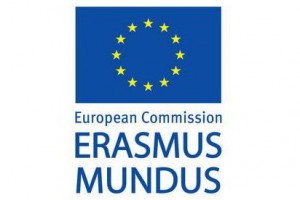 David Willetts, Minister for Universities and Science, recently submitted a response to a report ‘Recommendations to support UK Outward Student Mobility ‘ produced by a group established last year to review the obstacles and incentives to outward student mobility in the UK.
David Willetts, Minister for Universities and Science, recently submitted a response to a report ‘Recommendations to support UK Outward Student Mobility ‘ produced by a group established last year to review the obstacles and incentives to outward student mobility in the UK.
Support was given for the report which advocates the creation of a national strategy for mobility supported by ‘a body designed to facilitate and promote best practice, effectiveness and professionalism’. In fact Mr Willetts liked it so much he asked the Group’s Chair to explore possible models for a national strategy, including a national body to coordinate this, for a future meeting of the high-level International Education Advisory Forum.
Student mobility is becoming a more strategic issue for the UK, giving students a competitive advantage in the employment market and institutions an increase in international collaborative research and raising the institutions profile across the world.
The EC released figures on the Erasmus Mundus programme last week; approximately 231,000 students and 43,000 university staff received an EU grant to study or work abroad as part of the Erasmus programme in 2010-11. This represents a 7.2 per cent increase for study grants compared with the previous academic year; a 15 per cent increase in grants for work placements; and a 13.3 per cent increase for staff exchanges.
Erasmus Mundus is a great way for you to get involved with student mobility and to help you build stronger networks abroad for future research collaborations. This programme funded by the EC is designed especially to help you establish partnerships with institutions abroad and also to allow you to study/ research/ teach internationally. You can read more on the Erasmus Mundus scheme on my previous blogpost.











 Dr. Chloe Casey on Sky News
Dr. Chloe Casey on Sky News Final Bournemouth University publication of 2025
Final Bournemouth University publication of 2025 On Christmas Day in the Morning…
On Christmas Day in the Morning… New Nepal scoping review on maternal & neonatal health
New Nepal scoping review on maternal & neonatal health ECR Funding Open Call: Research Culture & Community Grant – Application Deadline Friday 12 December
ECR Funding Open Call: Research Culture & Community Grant – Application Deadline Friday 12 December MSCA Postdoctoral Fellowships 2025 Call
MSCA Postdoctoral Fellowships 2025 Call ERC Advanced Grant 2025 Webinar
ERC Advanced Grant 2025 Webinar Horizon Europe Work Programme 2025 Published
Horizon Europe Work Programme 2025 Published Horizon Europe 2025 Work Programme pre-Published
Horizon Europe 2025 Work Programme pre-Published Update on UKRO services
Update on UKRO services European research project exploring use of ‘virtual twins’ to better manage metabolic associated fatty liver disease
European research project exploring use of ‘virtual twins’ to better manage metabolic associated fatty liver disease